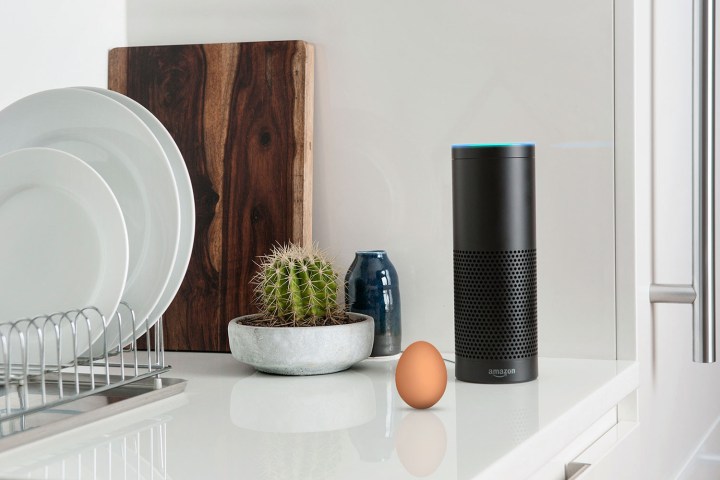
Voice-controlled personal assistants like Google Now and Siri have come a long way and each have their own strengths and weaknesses, but the man behind much of Siri’s technology is now taking issue with Amazon’s Alexa, calling the concept “incomplete.”
In an interview with Business Insider, Siri inventor Babak Hodjat said that the hype surrounding Amazon’s Echo and Alexa is unwarranted — there’s a missing component, he says: visual interactions.
“It has to be augmented with all sorts of other visual cues, interactions, and maybe show some icons to allow the user to be able to click,” Hodjat told Business Insider. “A solely speech recognition based system with no other user interface or contextual elements is complete.”
Related: CloudStatus is a new Alexa skill for AWS, and it was created by a 14-year-old
On a broader spectrum, Hodjat is offering a general criticism of zero-UI software, a recently popularized trend of products and services offering none-to-minimal visual interaction, much of the work being done behind the scenes with either voice control or artificial intelligence based on contextual data.
While Siri somewhat falls under the category of zero-UI technology, those familiar with Apple’s personal assistant are aware of the interface built in with the product.
But Hodjat, who is now chief scientist at artificial intelligence startup Sentient Technologies, said if users seek true conversation with their virtual assistant, voice control simply isn’t enough. Clicking and typing capabilities are required, he argues, as well as a camera to capture the emotional nature of the conversation.
“Solely speech recognition-based systems are only going to address a subset of the needs for ultimate conversational models,” he told BI. “Right now, it’s just this little side niche that’s cool and you play around with it.”
Hodjat’s negativity toward Amazon’s product is of course understandable and personal, given his background pioneering Siri’s technology, but was clear in admitting the company has been successful with Alexa nonetheless.
“Amazon’s done a very good job with Alexa, but I think the screen to augment the interaction is important,” he said.


